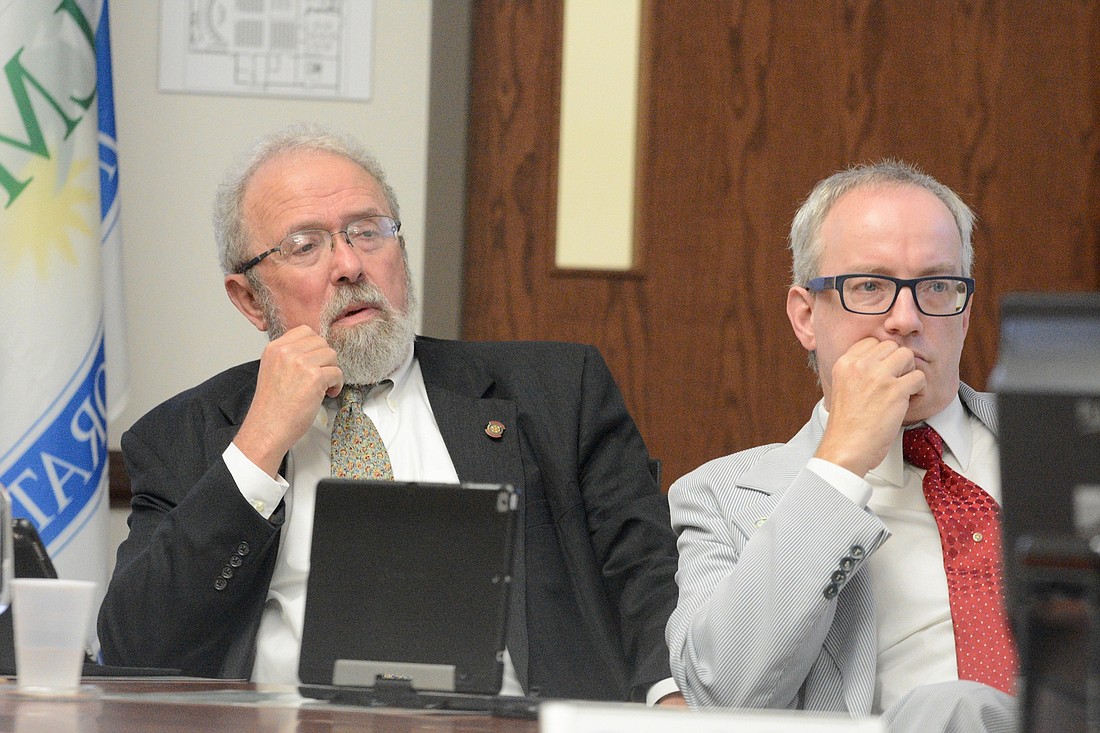- July 27, 2024
-
-
Loading

Loading

City of Palm Coast government staff are recommending that the City Council raise stormwater rates from the current $11.65 per month to $15.55 per month in fiscal year 2019, with stepped increases of $1.68 each following year until the city is charging $23.95 per month in 2024, according to a presentation before the council at its regular workshop Sept. 11.
That option has a lower 2019, 2020 and 2021 increase than any of a series of options presented to the council by consulting firm Public Resources Management Group two weeks ago, when the least expensive option for residents started at $16.19 per month in 2019 and would have risen to $21.45 in 2024.
"Right now we’re a lot more reactionary. ... We really need to get away from that."
— JIM LANDON, Palm Coast city manager, on the city's swale maintenance program
Palm Coast hasn’t adjusted the stormwater fee since 2013, and needs to do so to keep up with maintenance costs and undertake capital improvement projects.
“If we do nothing, as we are today, we’re going to keep getting behind,” Palm Coast Mayor Milissa Holland said.
The option recommended by city staff at the Sept. 11 workshop would bring in $74.7 million in revenue between 2019 and 2024, allowing the city to undertake large-scale capital improvement projects and increase its regular maintenance.
Some of that maintenance work, City Manager Jim Landon told the council during the workshop, is the city’s ongoing effort to maintain swales and repair ditches and pipes, a process that is currently proceeding at a rate of about 15 miles worth of swale per year.
“I think the key to it is, we have to get more done and be more responsive; we can’t tell people, ‘We’ll be there in three years,’” Landon said. “Right now we’re a lot more reactionary. ... We really need to get away from that.”
Landon proposed that the city approach swale work by dividing the city into drainage basins, then tackling one basin at a time.
“You’re not going to complete the whole drainage basin at one time, but there needs to be a better overall schedule and plan,” he said.
Councilman Bob Cuff asked Landon if there is anything the city could do to prevent the proliferation of frogs and mosquitos in stagnant wet swales.
“We walk by these areas ... and it’s like Sea World, only in miniature,” Cuff said.
Landon replied that the city hasn’t looked at chemical treatment options, only engineering solutions.
Holland said the rate change would let the city be more methodical and strategic about how it approaches its stormwater infrastructure.
“It’s inevitable that the more we continue to make these investments and maybe even accelerate investments, it will hopefully reduce the impact overall on our community when we do get hit with a very, very, very serious rain event,” Holland said. “I do think it strikes a good balance on taking a different approach than what we’ve taken historically, which is much more reactionary.”
The council will vote on the rate change proposal at a future business meeting.